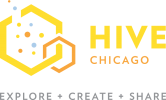 At the February 3, 2015 Chicago OpenGov Hack Night, Jimm Dispensa talked about Aldertrack – A project to help residents of Chicago follow the 2015 Chicago Aldermanic and Mayoral elections. The site offers race forms, analysis, webinars, as well as providing extensive social media coverage of each race.
At the February 3, 2015 Chicago OpenGov Hack Night, Jimm Dispensa talked about Aldertrack – A project to help residents of Chicago follow the 2015 Chicago Aldermanic and Mayoral elections. The site offers race forms, analysis, webinars, as well as providing extensive social media coverage of each race.
History of Aldertrack
The site was first started by Dispensa in 2007 as a text only website that tried to gather details about Chicago’s elections and sort them out by ward. In 2010, he was joined by Mike Fourcher and the (now defunct) Chicago News Cooperative to create the first Early & Often site for the 2011 elections.
In 2010 Mike Fourcher became a part of Aldertrack and the group partnered with the Chicago News Cooperative to create the first version of Early & Often for the 2011 Chicago elections. (This may sound familiar since the Sun-Times’ had it’s own Early & Often site that was purchased from the Chicago News Cooperative.)
For this year’s elections, Ramsin Canon has also joined the team and is helping to make the site a more complete guide to this year’s elections.
Using tools to make the site cheap to run
The Aldertrack team uses several tools to make the site inexpensive to run. Here are the ones the teams lists as indispensable:
- WordPress: WordPress is a popular blogging platform that’s simple to use. (We use WordPress as well!)
- Mailchimp: Mailchimp is a platform that allows users to send out email campaigns. Aldertrack uses it to send out daily email updates about the election.
- Slack: Slack is an internal communication tool that organizations use to communicate with each other in real time. It’s similar to the old IRC chat rooms, but it’s got a much better user interface and can integrate with other platforms like GitHub.
- Stripe: Stripe is a payment system that integrates easily with apps. If you’ve ever used Lyft, you’ve used Stripe
- Join.Me: Join.me is a screen sharing tool that the Aldertrack teams uses for Webinars.
- data.cityofchicago.org: The Aldertrack team also makes extensive use of the City Data Portal
The Aldertrack Team also has several tools that they don’t love, but use anyway including
- Microsoft Word and Excel
- Adobe Acrobat for PDF reading
- The Chicago Board of Elections Website: The team uses the site to get information, but says it’s not the most user friendly site.
There were also sites that the team called useless such as Facebook and printing their own newsletters. Dispensa said that while people will print things out themselves, it’s not cost effective to print for a medium-sized runs of things. The team at Aldertrack also finds Facebook useless for small audiences.
Lessons Learned
Dispensa shared several lessons that he’s learned in running the Aldertrack. The first few lessons revolve around knowing their audience. Dispensa says the audience for Chicago politics isn’t as big as you think and that their more interested in raw data than analysis. Dispensa also says it takes a lot of effort and inside knowledge of local politics to produce quality content for political junkies.
The team also found that traditional advertising doesn’t do much for increasing engagement among political junkies. They also found that exposure on other media hasn’t driven up readership or sales either.
The Aldertrack team found that while video doesn’t get many eyeballs – it does make the organization seem more professionals. For their webinars, the team uses two iPhones and a lapel mic.
Dispensa also says that more open government data has leads to more, not less, information arbitrage opportunities.
You can watch the entire presentation below:
To get more information about Aldertrack, visit their website here!
 At this week’s Chicago OpenGov Hack Night, Robert Friedman and Kyla Williams spoke about the Hive Learning Network and the collaborative projects that we’re launching with the Hive Learning Network.
At this week’s Chicago OpenGov Hack Night, Robert Friedman and Kyla Williams spoke about the Hive Learning Network and the collaborative projects that we’re launching with the Hive Learning Network. At the February 3, 2015 Chicago OpenGov Hack Night, Jimm Dispensa talked about Aldertrack – A project to help residents of Chicago follow the 2015 Chicago Aldermanic and Mayoral elections. The site offers race forms, analysis, webinars, as well as providing extensive social media coverage of each race.
At the February 3, 2015 Chicago OpenGov Hack Night, Jimm Dispensa talked about Aldertrack – A project to help residents of Chicago follow the 2015 Chicago Aldermanic and Mayoral elections. The site offers race forms, analysis, webinars, as well as providing extensive social media coverage of each race.




